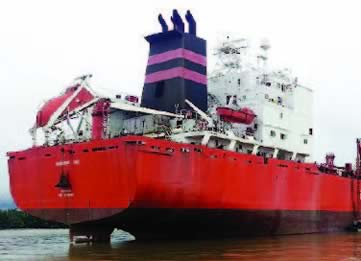Three major oil marketers are set to import approximately 141 million litres of Premium Motor Spirit (PMS), commonly known as petrol, into Nigeria this week, barring any unforeseen circumstances. This follows the Federal Government’s full deregulation of the downstream oil sector, paving the way for more private imports.
Sources revealed on Tuesday that the imported petrol is being transported by vessels and expected to arrive in Nigeria soon. The deregulation move, along with the recent increase in pump prices for petrol produced by the Dangote Petroleum Refinery, has opened the door for private marketers to bring in fuel from abroad. On Monday, the Nigerian National Petroleum Company Limited (NNPC) released the new pump prices, which saw PMS selling for as high as N1,019 per litre in some northern regions.
An infographic released by the NNPC indicated that the price of petrol from the Dangote refinery would vary by region, with Borno State seeing the highest rate at N1,019 per litre. In contrast, prices in Lagos and its environs will be N950 per litre, with other southern states like Rivers and Oyo expected to see petrol prices at around N960 per litre.
One of the oil marketers, speaking on condition of anonymity, confirmed that three dealers are set to import PMS this week, with each vessel carrying about 35,000 metric tonnes of fuel. This translates to roughly 141 million litres, given the conversion rate of 1,341 litres per metric tonne.
“Each marketer typically imports three parcels of PMS, with each parcel containing around 35,000 metric tonnes,” the marketer explained. “However, regulatory authorities like the Nigerian Midstream and Downstream Petroleum Regulatory Authority (NMDPRA) will still need to inspect the quality of the fuel and carry out various tests before it can be sold.”
The process of importing fuel is expected to take time, with the marketer noting that all three parcels won’t arrive at once. “The importation process is staggered, so while one vessel may arrive this week, others may follow in a week or so. Importation is complex and involves storage logistics, which means the products are released gradually.”
The NMDPRA has stressed that all imported fuel will be subjected to rigorous testing before it can be sold in Nigeria. According to the authority’s spokesperson, George Ene-Ita, only products that meet the required standards will be cleared for offloading and distribution.
“The imported petrol must go through our established testing protocols at the ports to ensure they meet the specified standards before being authorised for sale,” Ene-Ita stated.
























